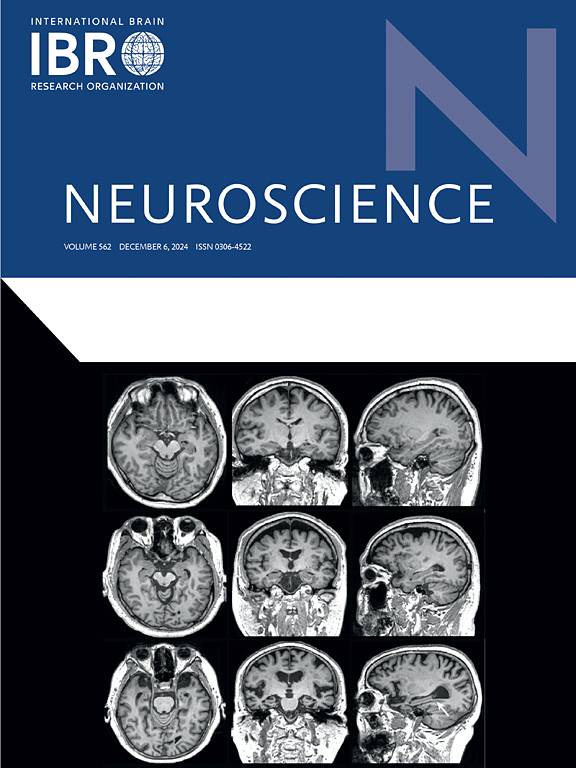发育性协调障碍成人的非典型内隐程序学习:涉及皮质能力调节的证据
IF 2.9
3区 医学
Q2 NEUROSCIENCES
引用次数: 0
摘要
本研究旨在利用脑电图(EEG)研究成人发育性协调障碍(DCD)的内隐程序学习及其相关的神经振荡活动。样本包括22名成年DCD患者(14名女性)和22名年龄匹配的对照组(11名女性),年龄在18-21岁之间。参与者参与了一项改进的序列反应时间任务(SRTT),旨在评估内隐序列学习。行为结果显示,DCD组和对照组在反应时间或速度-准确性权衡指数上没有显著差异,这表明患有DCD的成人内隐序列学习可能没有受损。然而,脑电图分析显示,振荡能量有显著差异;值得注意的是,与对照组相比,DCD组在额叶区表现出更高的θ波振幅和额叶区θ波带的延迟峰。这些发现表明,虽然行为表现可能是典型的,但DCD组潜在的神经过程明显不同,并强调了成人DCD患者的程序性学习缺陷。这些结果丰富了我们对DCD的神经基础的理解,并为设计有针对性的干预措施以提高受影响个体的程序性学习能力提供了见解。本文章由计算机程序翻译,如有差异,请以英文原文为准。

Atypical implicit procedural learning of adults with developmental coordination disorder: Evidence involving the modulation of cortical power
This study aimed to explore the implicit procedural learning and associated neural oscillatory activities in adults with Developmental Coordination Disorder (DCD) using electroencephalography (EEG). The sample consisted of 22 adults with DCD (14 females) and 22 age-matched controls (11 females), aged 18–21 years. Participants engaged in a modified Serial Reaction Time Task (SRTT) designed to assess implicit sequence learning. Behavioral results did not show significant differences in reaction times or speed-accuracy trade-off indices between the DCD and control groups, suggesting that implicit sequence learning might not be impaired in adults with DCD. However, EEG analysis revealed marked differences in theta oscillation energies; notably, the DCD group displayed higher theta amplitudes in the frontal region and delayed peaks in frontal-region theta bands compared to controls. These findings suggest that while behavioral performance might appear typical, the underlying neural processes in the DCD group are significantly different and underscore procedural learning deficits in adults with DCD. The results enrich our understanding of the neural underpinnings of DCD and offer insights for devising targeted interventions to improve procedural learning abilities in affected individuals.
求助全文
通过发布文献求助,成功后即可免费获取论文全文。
去求助
来源期刊

Neuroscience
医学-神经科学
CiteScore
6.20
自引率
0.00%
发文量
394
审稿时长
52 days
期刊介绍:
Neuroscience publishes papers describing the results of original research on any aspect of the scientific study of the nervous system. Any paper, however short, will be considered for publication provided that it reports significant, new and carefully confirmed findings with full experimental details.
 求助内容:
求助内容: 应助结果提醒方式:
应助结果提醒方式:


